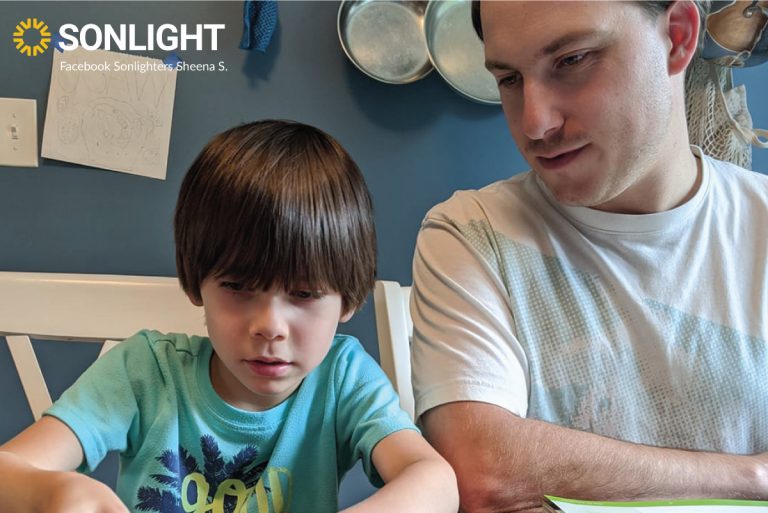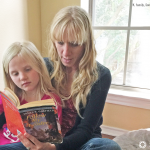When the sun breaks out after many days of gray drizzle, my spirits lift. How about you? It's no surprise that the climate around us can really affect how we feel and act.
Since you spend all day with your family, you probably pay attention to the emotional climate inside your home. Just like you can't ignore the weather when it's 75 degrees and sunny, it's hard to let your family's mood go unnoticed. You probably know from experience how much everyone benefits when you and your spouse have been communicating particularly well. And chances are you've also seen how sibling rivalry or unchecked anger can drag the whole family down.
So how can we cultivate favorable climates in our families? How can our houses (filled with noise as they may be) truly be places of peace?
I don't have all the answers, but I have thought a lot about these questions. When the kids were young, I found a few ground rules helped the whole atmosphere of the family. We intentionally follow these four principles in the Holzmann house:
1. No Put Downs
No put downs has always been a firm family rule. It forbids any insult directed at other people or at oneself. Not only was this house rule an easily definable way to keep the kids from picking at each other, it also prevents unintentionally hurtful sarcasm and stops us from indulging in discouraging self-talk. I believe that if we can manage our tongues (a difficult task indeed!), our hearts often follow suit.
2. Keep Short Accounts
I learned this house rule one from my friend, Becky, who worked on a team overseas for many years. In her time overseas, team tensions frequently rose between people from different backgrounds with very different ways of doing things. When her team committed to keep short accounts, they realized it was much more effective to ask forgiveness than to allow hurts to fester.
Instead of building up long tallies of who did what against us and harboring guilt about what we've done to others, keeping short accounts means we ask for forgiveness and forgive generously and often. Even if someone who wronged us doesn't ask for forgiveness, we can discuss the situation with him or her when appropriate and then choose to not hold a grudge.
In our family, our oldest daughter, Amy, modeled this for all of us. When she sensed tensions between her siblings, she would (on her own initiative) call a family meeting among the four of them. She would point to one sister or brother and say, "Talk. Tell us what's going on." And then give the next child a chance to respond. Through these impromptu meetings, our children (who are very different from one another) learned to keep short accounts and get along. If you can encourage your children to do similarly, they'll build a great life skill.
3. Make Charitable Assumptions
Just as we can extend grace to others by keeping short accounts, we also show grace when we choose to make charitable assumptions. If a friend does something that hurts me, I can choose to assume that she is acting from good motivations and that there is something I just don't understand about the situation.
Many times, what we assume is a personal attack on us is really just a misunderstanding, a momentary lapse of judgment, or a result of outside factors completely unrelated to us.
As we adopt a humble attitude we can choose to believe the best about others.
I should mention that keeping short accounts or making charitable assumptions doesn't mean you have to make unwise decisions. If a friend has proven again and again that she can't be trusted to keep your personal struggles private, it may be wise to choose not to share things with her that you don't want others to know. Making a charitable assumption doesn't mean you should assume that this is the time she'll prove worthy of trust. But it does mean you grant her grace by not assuming that she's trying to tear you down.
4. Don't Take Up the Offenses of Others
The last principle means that even as we support our family members and friends, we don't take up their interpersonal struggles as our own. If a friend is frustrated with my pastor, I can be supportive and encourage her to talk with him and resolve the issue, but I don't have to become a crusader to take her cause on as my own.
Within your family, this house rule prevents issues from blowing out of control and can keep your kids from ganging up on one another. More often than not, when we take up someone else's problem, we don't even understand both sides of the issue we're fighting.









